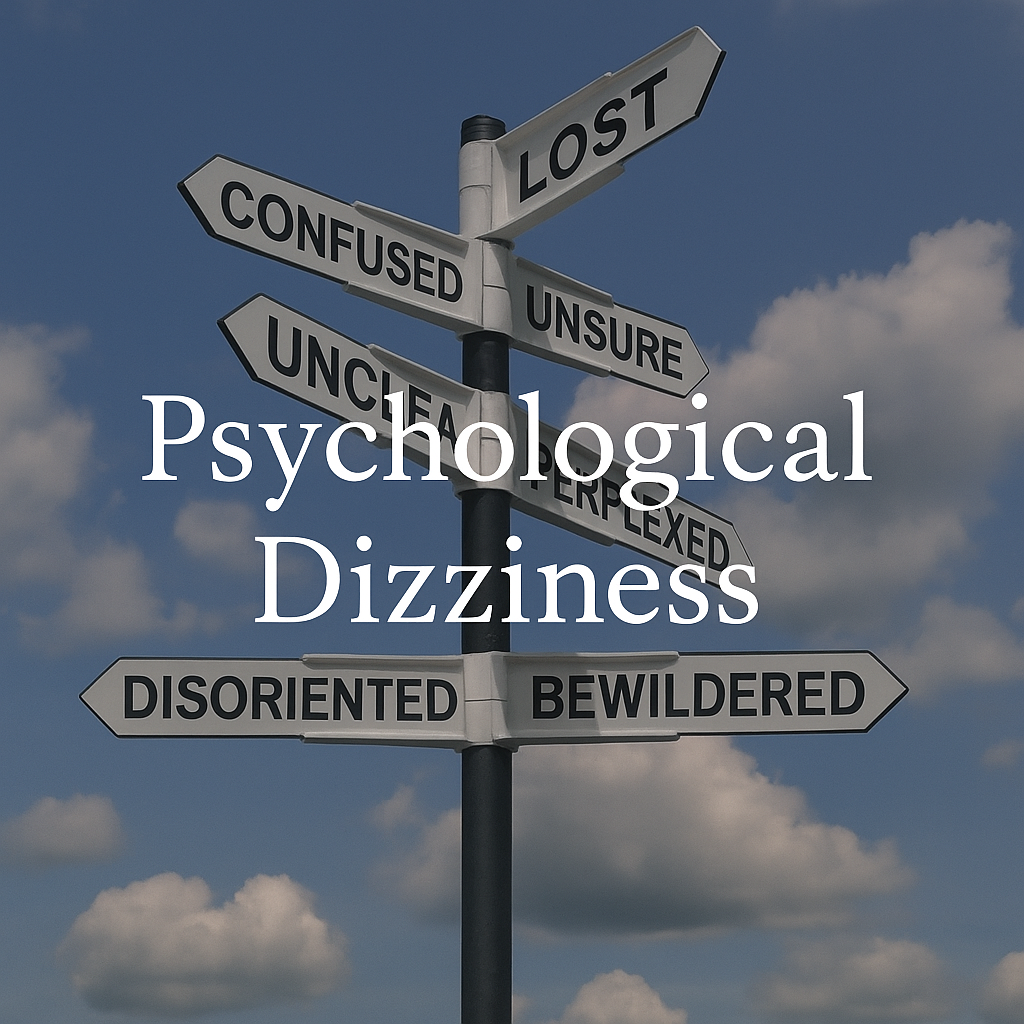Have you ever felt a sense of confusion or disorientation that left you feeling uneasy and unsure about your own intuition? If so, you may have experienced what I have been calling “psychological dizziness.”
Much like the discombobulating feeling of motion sickness, psychological dizziness can make you feel nauseated and unsteady. It occurs when we are given mixed messages, particularly double-binded messages, that create significant stress and ambiguity in our lives.
Physiological dizziness can be caused by a variety of factors, including problems with the inner ear, blood pressure changes and medication side effects. It is characterized by a sensation of spinning or disorientation, accompanied by symptoms such as lightheadedness, vertigo and loss of balance.
In the case of psychological dizziness, however, the root cause is not a physical issue, but rather a result of the rapid firing of neurons and difficulty with regulating incoming information that is confusing or ambiguous. This can occur when we are presented with conflicting or contradictory messages from the environment, which can create a sense of cognitive dissonance and leave us feeling uncertain or confused. In these cases, we may find it difficult to trust our own intuition or make clear decisions.
By understanding the connection between our neurological processes and psychological dizziness, we can develop strategies to manage and alleviate its symptoms.
Ultimately, the key to managing psychological dizziness is to find what works for us as individuals. There are many strategies we can use to restore our sense of stability and clarity. By taking proactive steps to care for our mental and emotional health, we can build the resilience and resources we need to navigate the challenges of life with greater ease and confidence.
So how can we alleviate psychological dizziness and restore our sense of stability and clarity?
1. Anchoring: One effective strategy is to anchor ourselves in a particular thought or idea that helps us regain our focus and perspective. Just as we might look at the horizon to steady ourselves when feeling seasick, we can find something in our lives to focus on that is stable. Perhaps it’s a task that needs to be accomplished or a goal that we’re working towards. By focusing on this one thing, we can regain our sense of control and alleviate some of the anxiety and confusion associated with psychological dizziness.
2. Practice mindfulness: Mindfulness involves focusing our attention on the present moment and accepting our thoughts and feelings without judgment. Mindfulness meditation can help us develop greater self-awareness and emotional regulation, which can reduce feelings of tension and imbalance.
3. Engage in regular physical activity: Regular physical activity has been shown to boost mood and reduce symptoms of anxiety and depression. Exercise can also help us release pent-up emotions and regain a sense of control over our bodies and minds.
4. Prioritize self-care: This can include activities such as getting enough sleep, eating a healthy diet, taking breaks when we need them, engaging in a creative hobby, and talking to a trusted friend or mental health professional. By prioritizing our own needs and well-being, we can build up our resilience and reduce the impact of stress and uncertainty on our lives.
Of course, there will always be plenty of distractions and competing demands in our lives. But by taking a moment to center our focus on one specific thing, we can create a sense of stability and calm that helps us tackle the challenges that lie ahead. So the next time you’re feeling overwhelmed and unsure, try to find something to anchor your thoughts and emotions. By doing so, you may find that you’re better able to navigate the turbulent waters of life with greater ease and confidence.
Ready to explore more about the fascinating world of psychology? Click here to browse through our psychology services page: https://zpsychology.com/services/ and discover expert insights to nourish your mind.
Hungry for more brain-boosting content? Feed your curiosity with Z’s Brain Food Blog! Click the link below to find a rich collection of captivating articles on various psychology topics: https://zpsychology.com/z-brain-food-blog/.
For a comprehensive view of our services and resources, visit our main website: https://zpsychology.com/.
Thank you for joining us on this journey of understanding the complexities of the human mind. Happy reading!

